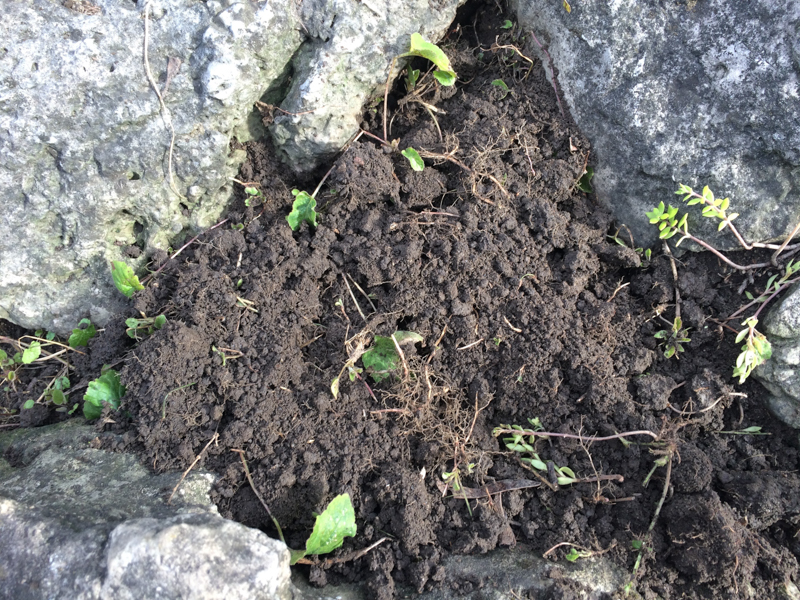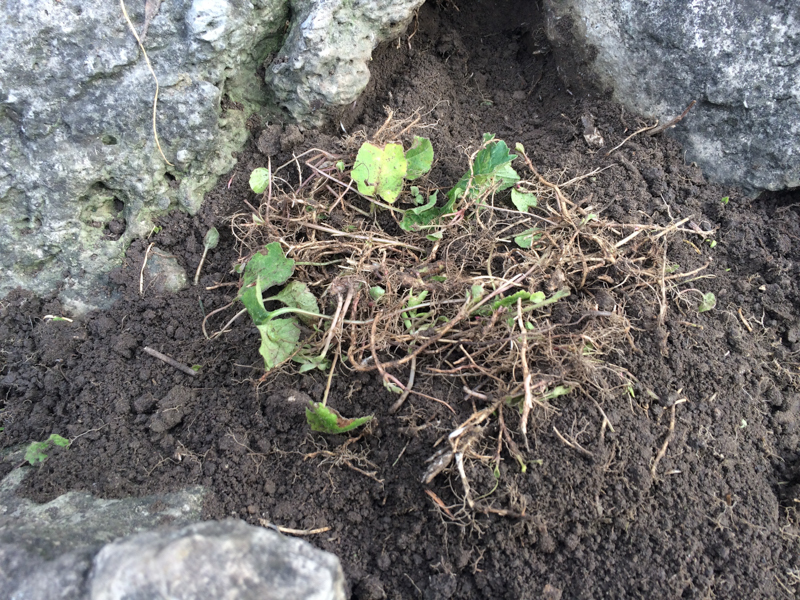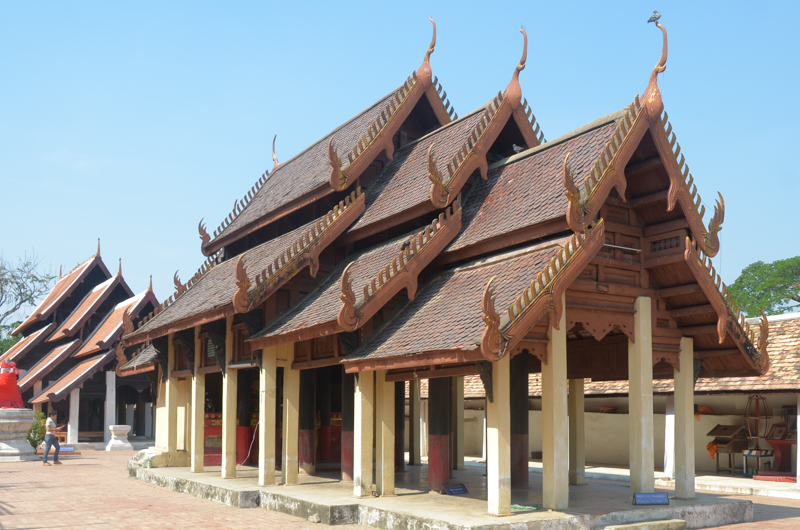Lampangluang Buddhist Temple, Northern Thailand.
The other day, I was working in our small garden trying to pull up the weeds that have begun to accumulate. It was slow going because each small plant had deep roots and was hard to pull out intact to ensure I got the entire root. My wife had a clever idea. She showed me that if we dig deeper and wider we can pull up many of the plants at once and then we just need to sift through the soil to take out the weeds in bunches rather than one by one. I’ve included some before and after pictures below to demonstrate.
 Before: weeds firmly rooted
Before: weeds firmly rooted
 After: weeds uprooted
After: weeds uprooted
What I learned from this experience was that the root systems of these weeds are quite extensive and hold the plants very tightly to the earth. It reminded me of what we’re doing when we practice Vipassana. Remember the Buddha’s warning to us about the cause of unskillful action and why we need to meditate to do away with it: “There are these three roots of what is unskillful. Which three? Greed as a root of what is unskillful, aversion as a root of what is unskillful, delusion as a root of what is unskillful. These are the three roots of what is unskillful.”
However, just like the garden example, the defilements are very deeply rooted. If we try to pull at one of the weeds from the top, we have a very low probability of getting the root out. What we need is the equivalent of deeper and wider digging. Fortunately, the Buddha taught us exactly how to do that. He explained what we need to do to eventually become what Buddhists call a non-returner, which is a person with no greed or anger and greatly reduced delusion. In other words, a person who has succeeded in uprooting many of the defilements.
The Buddha said, “Abandon one quality, monks, and I guarantee you non-return. Which one quality? Abandon greed as the one quality, and I guarantee you non-return.” When applied to us lay people, the Buddha is explaining to us how, if we are patient and delay our gratification, we will be more skillful and hence more satisfied with life. He is encouraging us to temporarily delay our worldly pursuit of wealth and sensual pleasure — those things will be waiting for us when we get back — and instead devote some time to insight meditation practice in a retreat setting.
It’s important to take some time to consider your options rationally. For example, if one unit of happiness costs you $100 today but after meditation it costs you $90 because you have less greed, which is better? Which path is more sustainable over the long term? Here’s my two cents. The lower costs option is preferable because it allows you to be more versatile and spend more of your time doing the things that really matter to you. The other path, pursuit of wealth without wisdom, is just a rat race: you never actually get to where you want to be. We hope you will take this to heart and consider devoting some of your time to meditation. Now you have a good reason: the Buddha promised us that it will lead us to become more skillful.
